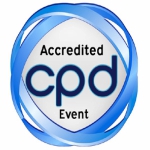
Amy Clements-Cortes
Amy Clements-Cortes, University of Toronto, Canada
Title: Transformative music therapy at end-of-life
Biography
Biography: Amy Clements-Cortes
Abstract
Relationships are often a cause of substantial psychological pain for patients and their families at end-of-life. Anticipatory grief is commonly experienced by dying persons, focusing on multiple issues including: the loss of relationships, as well as the loss of forthcoming life events of which they will not be able to participate. Music therapy is commonly used in palliative care settings to address anticipatory grief, and is a valuable therapy for addressing relationship concerns.
Dileo and Dneaster’s (2005) Model of music therapy in palliative care defines three levels of practice. At the support level, music therapy is used to support the patient and palliate symptoms. At the communicative and expressive level, music therapy facilitates the patient in reflecting upon and conveying feelings, and at the transformative level, music therapy may facilitate growth and insight at the end-of-life.
This presentation will overview this model and music therapy techniques implemented to assist patients with reference to how they have been described and implemented in the literature; with a focus on songwriting, the creation of musical autobiographies, and the construction of legacy gifts. A clinical case study of a 63 year old terminally ill patient will be shared, alongside the results of a research study which assessed the transformative role of music therapy in facilitating relationship completion. Further, the presenter’s analysis of the current practice of music therapy in palliative care will be shared identifying the emergence of nine themes of practice, falling into three categories: physical, psychosocial, and whole person care.

